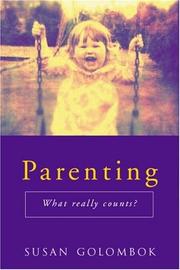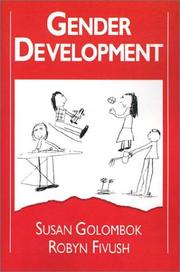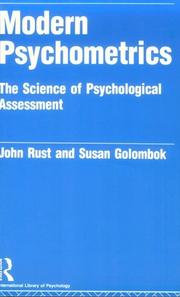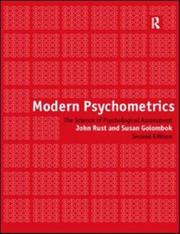| Listing 1 - 10 of 15 | << page >> |
Sort by
|

ISBN: 9780415227155 0415227151 041522716X 9781315787824 9781317724650 9781317724667 9781317724674 9780415227162 Year: 2000 Publisher: London: Routledge,
Abstract | Keywords | Export | Availability | Bookmark
 Loading...
Loading...Choose an application
- Reference Manager
- EndNote
- RefWorks (Direct export to RefWorks)
Parenting --- Parent and child --- Parents --- Single parents --- Gay parents --- Child psychology --- Rôle parental --- Parents et enfants --- Parents uniques --- Parents homosexuels --- Enfants --- Psychology --- Psychologie --- Child Psychology --- #PBIB:2001.4 --- Rôle parental --- Lone parents --- Parents without partners --- Parent behavior --- Parental behavior in humans --- Child and parent --- Children and parents --- Parent-child relations --- Parents and children --- Homosexual parents --- Behavior, Child --- Child behavior --- Child study --- Children --- Pediatric psychology --- Psychology, Child --- Child psychology. --- Divorced parents --- Parenting, Part-time --- Child rearing --- Parenthood --- Children and adults --- Interpersonal relations --- Parental alienation syndrome --- Sandwich generation --- Child development --- Developmental psychology --- Parents - Psychology
Book
ISBN: 9781107055582 9781107650251 9781107295377 110705558X 1107650259 1107295378 1316309266 1316288536 Year: 2015 Publisher: New York: Cambridge university press,
Abstract | Keywords | Export | Availability | Bookmark
 Loading...
Loading...Choose an application
- Reference Manager
- EndNote
- RefWorks (Direct export to RefWorks)
"The popular American sitcom Modern Family, featuring the trials, tribulations and, in many ways, very ordinary lives of three related contemporary families, including Jay, a middle-aged father who is remarried to a much younger Columbian woman who has a son from a previous marriage, Jay's daughter and her traditional family with a hands-on father and their three children, and Jay's gay son, his male partner and their adopted Vietnamese daughter, highlights the diverse ways in which families are formed today. Although Modern Family is a parody of present-day family life, the reality is even more extraordinary"-- "Modern Families brings together research on parenting and child development in new family forms including lesbian mother families, gay father families, families headed by single mothers by choice and families created by assisted reproductive technologies such as in vitro fertilisation (IVF), egg donation, sperm donation, embryo donation and surrogacy. This research is examined in the context of the issues and concerns that have been raised regarding these families. The findings not only contest popular myths and assumptions about the social and psychological consequences for children of being raised in new family forms but also challenge well-established theories of child development that are founded upon the supremacy of the traditional family. It is argued that the quality of family relationships and the wider social environment are more influential in children's psychological development than are the number, gender, sexual orientation, or biological relatedness of their parents or the method of their conception"--
Parenting --- Child Development --- Families --- Mother and child --- Parenting. --- Child development. --- Families. --- Mother and child. --- Psychology --- Developmental --- General. --- Child development --- Child and mother --- Mother-child relationship --- Mothers and children --- Parent and child --- Family --- Family life --- Family relationships --- Family structure --- Relationships, Family --- Structure, Family --- Social institutions --- Birth order --- Domestic relations --- Home --- Households --- Kinship --- Marriage --- Matriarchy --- Parenthood --- Patriarchy --- Child study --- Children --- Development, Child --- Developmental biology --- Parent behavior --- Parental behavior in humans --- Child rearing --- Social aspects --- Social conditions --- Development --- #SBIB:316.356.2H1231 --- #SBIB:316.356.2H2221 --- #SBIB:316.356.2H3621 --- Gezins- en verwantschapsvormen: vormen van gezin en huishouding, relatievormen --- Gezinssociologie: ouders-kind relaties --- Gezinssociologie: vruchtbaarheid: Westers maatschappijen
Book
ISBN: 1316455084 1316455564 1316456528 1316456048 131645844X 1316117448 1107090962 1107463033 1316452204 Year: 2016 Publisher: Cambridge : Cambridge University Press,
Abstract | Keywords | Export | Availability | Bookmark
 Loading...
Loading...Choose an application
- Reference Manager
- EndNote
- RefWorks (Direct export to RefWorks)
The emergence of new empirical evidence and ethical debate about families created by assisted reproduction has called into question the current regulatory frameworks that govern reproductive donation in many countries. In this multidisciplinary book, social scientists, ethicists and lawyers offer fresh perspectives on the current challenges facing the regulation of reproductive donation and suggest possible ways forward. They address questions such as: what might people want to know about the circumstances of their conception? Should we limit the number of children donors can produce? Is it wrong to pay donors or to reward them with cut-price fertility treatments? Is overseas surrogacy exploitative of women from poor communities? Combining the latest empirical research with analysis of ethics, policy and legislation, the book focuses on the regulation of gamete and embryo donation and surrogacy at a time when more people are considering assisted reproduction and when new techniques and policies are underway.
Human reproductive technology. --- Human reproductive technology --- Ovum donors. --- Sperm donors. --- Reproductive rights. --- Family planning. --- Parenthood, Planned --- Planned parenthood --- Planning --- Birth intervals --- Family size --- Reproductive freedom --- Sexual rights --- Abortion --- Birth control --- Contraception --- Human reproduction --- Involuntary sterilization --- Donors, Sperm --- Men --- Donors, Egg --- Donors, Ovum --- Ova donors --- Ovum donors --- Women --- Medical laws and legislation --- Assisted conception --- Assisted human reproduction --- Assisted human reproductive technology --- Conception --- Human assisted reproduction --- Human assisted reproductive technology --- Medical technology --- Reproductive technology --- Law and legislation. --- Technological innovations
Book
ISBN: 9781912854493 9781925713701 9781925938203 Year: 2022 Publisher: Melbourne Scribe
Abstract | Keywords | Export | Availability | Bookmark
 Loading...
Loading...Choose an application
- Reference Manager
- EndNote
- RefWorks (Direct export to RefWorks)
Digital
ISBN: 9781107295377 Year: 2015 Publisher: Cambridge Cambridge University Press
Abstract | Keywords | Export | Availability | Bookmark
 Loading...
Loading...Choose an application
- Reference Manager
- EndNote
- RefWorks (Direct export to RefWorks)

ISBN: 0521403049 0521408628 Year: 1994 Publisher: Cambridge Cambridge University Press
Abstract | Keywords | Export | Availability | Bookmark
 Loading...
Loading...Choose an application
- Reference Manager
- EndNote
- RefWorks (Direct export to RefWorks)
Interdisciplinair overzicht van theorie over en onderzoek naar genderontwikkeling van conceptie tot volwassenheid. Nadruk ligt op de complexe interactie tussen biologie, socialisatie en cognitie. Behandeld worden hormonale invloeden, morele ontwikkeling, spel en vriendschap, ervaringen op school en op werk en psychopathologie. Interessant overzicht van de actuele denkpistes inzake genderontwikkeling.
Gender identity --- Sex role --- Gender Identity --- Personality Development --- Identité sexuelle --- Rôle selon le sexe --- Sex identity (Gender identity) --- Sexual identity (Gender identity) --- Identity (Psychology) --- Sex (Psychology) --- Queer theory --- Gender role --- Sex differences (Psychology) --- Social role --- Gender expression --- Sexism --- Identité sexuelle --- Rôle selon le sexe --- Social psychology --- Sociology of the family. Sociology of sexuality --- Sociology of work --- Educational psychology --- Depth psychology --- Human physiology --- Teaching --- Developmental psychology --- Sociology of leisure --- Primary groups --- General ethics --- Psychiatry --- Personality Development. --- Gender Identity. --- Gender identity. --- Sex role. --- Gender roles --- Gendered role --- Gendered roles --- Role, Gender --- Role, Gendered --- Role, Sex --- Roles, Gender --- Roles, Gendered --- Roles, Sex --- Sex roles --- Gender dysphoria --- Ethics --- Gender --- Identity --- Life-forms --- Academic performance --- Labour --- Education --- Psychological vulnerabilities --- Psychoanalysis --- Socialization --- Game playing --- Stereotypes --- Friendships --- Biology --- Book

Abstract | Keywords | Export | Availability | Bookmark
 Loading...
Loading...Choose an application
- Reference Manager
- EndNote
- RefWorks (Direct export to RefWorks)
Psychometrics. --- Psychometric --- Statistics as Topic --- Psychometrics --- Measurement, Mental --- Measurement, Psychological --- Psychological measurement --- Psychological scaling --- Psychological statistics --- Psychology --- Psychometry (Psychophysics) --- Scaling, Psychological --- Psychological tests --- Scaling (Social sciences) --- Measurement --- Scaling --- Methodology
Book
ISBN: 9780415442152 9780415442169 Year: 2009 Publisher: Hove, East Sussex ; New York : Routledge,
Abstract | Keywords | Export | Availability | Bookmark
 Loading...
Loading...Choose an application
- Reference Manager
- EndNote
- RefWorks (Direct export to RefWorks)
Psychometrics. --- Psychométrie --- Psychometrics --- Measurement, Mental --- Measurement, Psychological --- Psychological measurement --- Psychological scaling --- Psychological statistics --- Psychology --- Psychometry (Psychophysics) --- Scaling, Psychological --- Psychological tests --- Scaling (Social sciences) --- Measurement --- Scaling --- Methodology
Book
Abstract | Keywords | Export | Availability | Bookmark
 Loading...
Loading...Choose an application
- Reference Manager
- EndNote
- RefWorks (Direct export to RefWorks)

Abstract | Keywords | Export | Availability | Bookmark
 Loading...
Loading...Choose an application
- Reference Manager
- EndNote
- RefWorks (Direct export to RefWorks)
| Listing 1 - 10 of 15 | << page >> |
Sort by
|

 Search
Search Feedback
Feedback About UniCat
About UniCat  Help
Help News
News